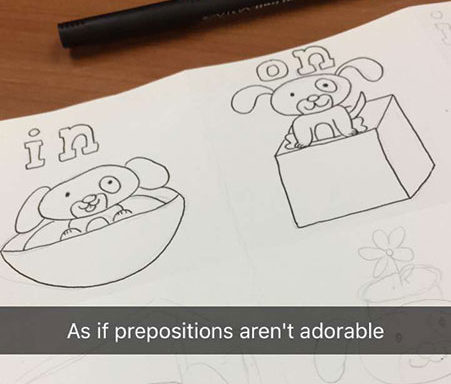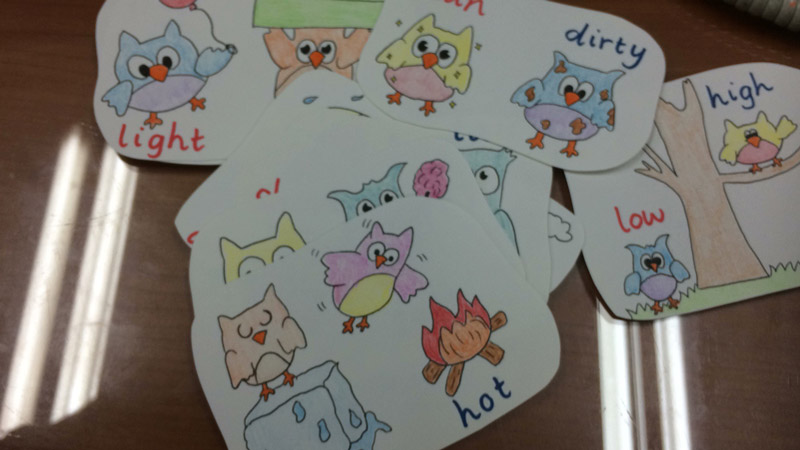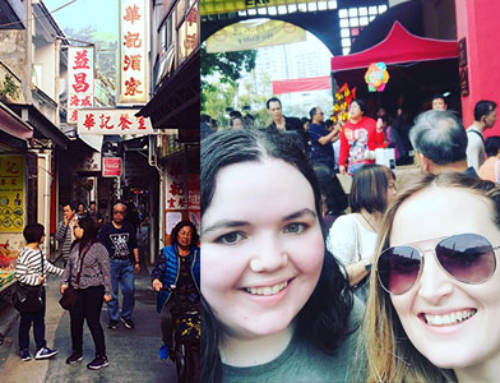
My Six Months Teaching English in South Korea
When wanderlust strikes, which it seems to be striking more and more Millennials, it is hard to resist the urge to go abroad. Packing it all in, grabbing a backpack, and taking off to a new destination to super appealing. The adventures that await and the experiences to be had are reason enough to leave that 9-5 lifestyle behind and escape the rat race is a whole new fashion…
Of course, not everyone has the funds to do this. While it is a beautiful notion to think that you don’t need money to be happy, it is false. Of course you need money. These adventures don’t come for free. This is why it is entirely awesome that we live in an amazing world where working abroad is more accessible than ever before. This way, you get the funds and you get the adventures. Not only are you abroad, you are working abroad. You are living and you are immersing yourself in a completely different level to backpacking and staying in a hostel.
This is exactly why I decided to pack up and head to South Korea to teach English.
Back in 2013, I finished my teaching degree at university in Melbourne. I was 22 years old. My life was on a trajectory that social norms put a big tick in the box next to. I had my university degree, I had a stable relationship with my boyfriend, and I had the opportunity to start saving money for a house. I also had intense boredom and wanderlust eating away at me.
So the relationship ended, the savings funded flights, and my degree landed me a job teaching English in France. After three years of adventures around Europe, I decided to try my luck in Asia. So here I am, teaching English in South Korea.
Many people have many questions. I don’t have all the answers, but I do have some.
Where do you teach?
There are two options with teaching in South Korea – to be at a public school, or at a private language academy, called a hagwon.
In the public system, you teach at an actual school during school hours. You don’t have your own classroom, but you are the foreign teacher who pops their head into multiple classes to use their native accent, alongside a Korean co-teacher.
At a hagwon, where I am, it is essentially after school group tutoring. It is more of a business than a school, if I’m honest. Imagine a large scale homework group. The students come for 50-minute classes, starting at 3.10pm. Some students do multiple classes between 3.10 and 9.30, when my hagwon finishes.
Both places have their perks and downfalls. The public system can have behavioural issues, excessive classes, and can often place you at two different school locations. The private system generally has well-behaved kids but quite often they are burnt out and totally tired after a whole day at school then hours at academy. No job is perfect, but at least there are options here.
Do you want to teach in Korea? Apply for our full job placements.
What do you actually teach?
This is something to be aware of – teaching English abroad often means conversational classes. More often than not, schools and hagwons in Korea are more interested in your native intonation than your grammatical knowledge. You can take this however you like.
At my academy, I don’t have to plan lessons. All the materials are provided in the textbooks and the main purpose is to help with articulation and pronunciation of words. I am a qualified primary school teacher, so I would actually prefer to make my own lessons. Others, however, without a teaching degree (you just need a Bachelor’s degree in any field to teach here), love this idea.
Some of my friends who are at public schools and have to make their own lessons struggle because they don’t know much about lesson planning. It should really be up to the recruiter or agency to make the right matches with schools/hagwons and applicants skillsets.
What are the perks of the job?
South Korea is something of a mecca for English teaching jobs abroad, especially in Asia. This is because the perks are amazing. First of all, the paycheck you get each month is enormous in comparison to other English teaching jobs. The saving potential is huge and easy.
The hours are also reasonable, so long as your boss doesn’t try to pull the wool over your eye! I work from 1.30pm until 9.30pm. A solid 8 hour workday with no overtime and enough breaks. Also, dinner is provided at the school (you quickly get used to the rice and spice lifestyle and using steel chopsticks!). Can’t complain here.
Housing or accommodation is provided in most contracts. I have my own studio apartment with everything I need. Sure, it is small, but it is also minimalistic and perfect for a life abroad. My electricity and gas bill is deducted from my monthly salary, but other than that it is rent free. That just leaves living costs and fun on the weekend to fund.
At the end of a year-long contract, you get a severance pay. This is the equivalent to a month’s paycheck. Bonus money! Also, if you complete the year-long contract, your boss will reimburse your airfare to South Korea. Perks all around!
Is it worth it?
Teaching in Korea is one of the best experiences around. It is a risk and it might not be perfect. Even if the job sucks, there are plenty of other great things going on. First of all, Korea has some amazing places to go. Seoul, Busan, and Daegu are three major cities that are incredible. The train network connecting each city and surrounding areas is cheap, reliable, and consistent.
From mountains to beaches and cities, Korea has plenty of offer on the weekends. Hiking is a huge lifestyle here so something worth getting into. There are themed cafes at every corner. There are endless things to do. It is hard to be bored in Korea.
Finally, the expat community is amazing. There are so many foreigners either teaching here, assigned in the US military or air force, or working some other expat job. With many facebook groups, it is easy to connect with others. The experience of Korea is amazing, and when you have others to share it with, it is even more amazing. South Korea is a land of the unknown, but rarely regrets. On that note, I think it is worth it!

 Rated 97% on GoOverseas!
Rated 97% on GoOverseas!











South Korea sounds incredible! Can you give me any tips on what the best time of year is to go?
Hey Jen!
Public schools usually do most of their hiring in February and March, but it can also be possible to gain work in a private school (or ‘Hagwon’) pretty much year-round.
For more information you can check out our job placements in South Korea here: https://www.letstefl.com/esl-job-placements/korea-job-placement/
Hi Jen,
Just wondering if you started with a 6 mos contract, or just opted not to work the full year.
I have been having a hard time trying to find 6 mos options.
Thanks!
Hi! If you don’t mind me asking, where were you able to get a 6 month contract? Your situation sounds perfect for me but I’m having a hard time finding contracts in Korea for less than 12 months. Thanks.
Hi, I just read through your blog, and I related to the part where you mentioned the intense boredom. My biggest fear is being stuck in a 9-5 job that hate, I have always wanted to travel, but never had the means. Your blog post just made me aware that it is normal for me to feel the way that I do; I have always felt societal pressures because my life has not exactly gone the way it is expected. To have everything figured out, that is something I am still working on. So thank you for making me feel less like a weirdo.
I am currently teaching in South Korea. If you want to leave the 9 to 5 rat race behind, this is not the right career for you. Because you have to work a lot of hours in this field. So don’t fall for thissugar-coated version of what it’s like to teach in Korea. Look through many blogs and youtube videos to try and get a well-rounded view of teaching in Korea before deciding on it.
Hi Judy! We completely agree – teaching in Korea is an incredible experience, but it’s not the most laid-back of teaching destinations. Korea and Japan are both famous for their long work hours, and employers which expect a great deal of dedication and effort from their employees.
For more relaxed destinations Thailand, Vietnam, and even Taiwan could be better options. Teachers in these countries still need to keep in mid that they’re working an important job, but these countries are generally more relaxed, and include less pressure to work overtime.